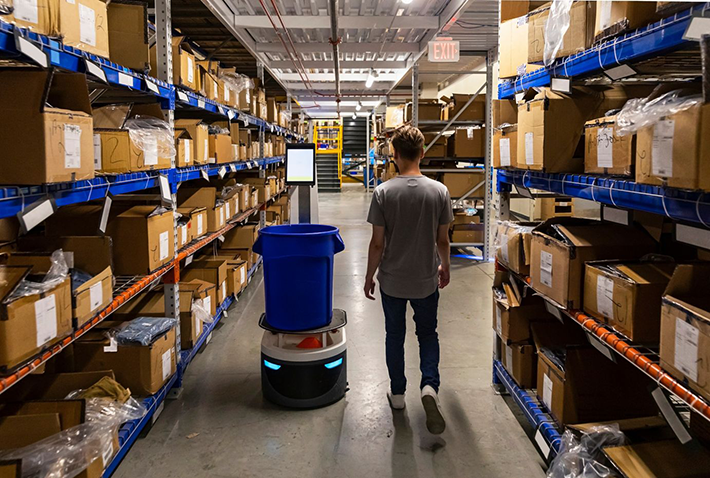Eurofound research explores the impact of digitalisation on working life, as well as the links with the transition to a climate-neutral economy. This covers employment levels, working conditions, social protection and employment relations. In the context of restructuring and digitalisation, analysing the role of industrial relations and social dialogue in implementing change is also important, as is the impact on society and citizens.
The research provides evidence on structural changes, driven largely by these megatrends, but also recent crises, that can inform policy in ensuring just transitions which promote employment, good working conditions, social protection and workers’ rights, while also improving labour productivity, competitiveness and prosperity.
Digitalisation in the workplace
Research looks at the effects of digitalisation at company level on employment and working conditions, including social protection. Research on automation and digitisation continues to build on previous research on game-changing technologies, the nature of work in digitised workplaces, employee monitoring and privacy at the workplace, as well as on data from Eurofound's surveys. Eurofound analyses the impact of digitalisation on working life, looking at the human and ethical implications of digitalisation at the workplace, as well as exploring the characteristics and effects of human–robot interaction related to advanced robotics.
Since 2017, Eurofound has been exploring these topics in a body of work structured around three vectors of change in digitalisation – automation, digitisation and platforms – that are affecting employment and working conditions and social dialogue. It examines the emerging aspects and challenges arising from rapid technological advancements, particularly in the areas of AI and algorithmic management.
The research aims to provide policymakers, employers, workers and their representatives with insights on how digitalisation is reshaping employment and work.
As regards platform work, Eurofound’s platform economy repository continues to monitor the evolution of this form of employment and business model. Based on this, specific research explores initiatives tackling issues around employment and working conditions.
Eurofound’s European Working Conditions Telephone Survey (EWCTS) carried out in 2021 provides updated data analysis on the impact of telework and ICT-based mobile work on various elements of working conditions and regulations. The EWCS 2024 results will be available in 2025.
Restructuring linked to megatrends in the economy
The European Restructuring Monitor (ERM) events database also captures where restructuring is specifically linked to digitalisation. Similarly, the ERM support instruments and legal databases have expanded to cover restructuring-relevant information related to digitalisation and the transition to a climate-neutral economy. Drawing on 2023 updates linked with anticipating and managing change, two recent articles explore the issues of employee monitoring and algorithmic management.
Informing the policy debate
Research on the twin transition related to digitalisation and climate change could provide relevant information for policymakers seeking solutions to make markets work better for consumers, business, workers and society, for the sustainable development of cities and urban areas, and to support regions to improve their infrastructure and access to services.

































